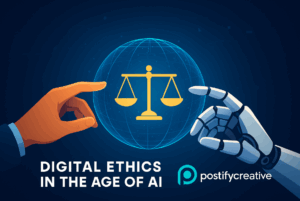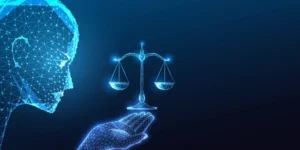Digital Age: Definition and Context
The “Digital Age” refers to the current era dominated by digital technologies — high-speed internet, social media, mobile devices, artificial intelligence, IoT (Internet of Things), etc. These transform how we communicate, learn, work, worship, and relate to each other.
For Muslims, this age brings both immense promise and serious questions. Islam has always addressed how its teachings apply in changing circumstances; the Digital Age is no different. The challenge is to integrate technology in a way that supports core Islamic values — tawhid, justice, compassion, truth, knowledge — while avoiding harms.
Key Areas of Impact:
1. Dawah (Propagation of Islam) via Digital Media
Opportunities:
- Social media platforms (YouTube, Instagram, Facebook, Whatsapp, TikTok, etc.) allow spreading Islamic teachings globally. Messages can travel across boundaries of time, space, culture.
- Scholars and daʿīs can reach younger generations (Gen Z, Millennials) through content formats they prefer — short videos, infographics, podcasts. Strategic daʿwah communication for Gen Z is one area of recent study.
Challenges:
- Risk of misinformation: unverified preachers, distorted interpretations, religious content without proper scholarly oversight. The ease of publishing means quality control is tough.
- Shifting authority: traditional medresehs, scholars, institutions may lose some perceived legitimacy compared to charismatic digital influencers.
2. Islamic Education: Learning & Teaching
Opportunities:
- Distance learning, virtual platforms, hybrid models make Islamic knowledge accessible: Qur’an learning, hadith classes, tafsir, and more are available online.
- Use of digital tools to preserve and promote Islamic culture, including Islamic arts, calligraphy, manuscripts. Digitization helps preserve rare texts.
Challenges:
- Infrastructure and access: not everyone has fast internet, good devices, or the skills to use them. This creates a digital divide
- Maintaining authenticity: ensuring that online content is accurate, well-sourced, and that the teaching retains depth rather than being superficial. Also, balancing traditional face-to-face instruction, mentorship, ta’lim-tarbiyyah with online methods.
3. Ethics, Morality, and Conduct
The Digital Age raises new ethical dilemmas. Islam has moral frameworks; the question is how to apply them:
- Digital Ethics: Issues like privacy, surveillance, data misuse, AI bias. How should Muslims behave online? What is the Islamic guidance regarding speech (online slander, gossip), images, videos?
- Cyber Piety & Ideal Behavior: Studies show Muslims may be aware of ideal conduct online (e.g. refraining from spreading misinformation, behaving respectfully), but there is often a gap between awareness and actual behaviour.
4. Religious Scholarship and Interpretation
- The tools of digital humanities, LLMs, apps with Qur’an/talks/hadith databases, etc. These enhance research for scholars, make classical texts more accessible.
- But there are hazards: potential misinterpretation, loss of nuance, reliance on apps without scholarly check, commercialization.
5. Community, Identity, and Spirituality
- Virtual Religious Communities: Muslims connect online for shared spiritual experiences, virtual worship, sharing Qur’an verses, etc. This can strengthen identity and offer support especially for isolated individuals.
- Spiritual challenges: Distractions, over-consumption of digital content, loss of contemplative time, superficial religiosity (doing religious acts for show, seeking popularity). Also, the erosion of personal, inner spiritual experiences when everything is mediated via screens.
Theoretical Reflections: Islamic Frameworks for the Digital Age
How can Islamic thought help guide Muslims through this era?
- Maqāṣid al-Sharīʿah (Objectives of Islamic Law) — preserving religion (hifẓ al-dīn), intellect (‘aql), honor (nafs), lineage (nasl), wealth (māl). These objectives can offer criteria: does a digital tool preserve or endanger these?
- Fiqh al-Muʿāmalāt (Islamic jurisprudence of interactions) — covering dealings, transactions, speech, public life. Digital addiction, online transactions, digital finance, privacy fall under this domain.
- Ijtihād — independent reasoning. Technology is new; scholars must engage to issue relevant rulings, fatwās, guidance. We see research urging institutional responses.
- Tazkiyah / Purification of the Self — spiritual growth is not about form only. Digital existence should be balanced with offline worship, mindfulness, avoiding distractions and sins.
Case Studies & Recent Empirical Findings
- “Sustaining Digital Faith: How Technology Impacts Religious Activities and Participation in the Digital Era” explores how virtual worship and religious communities change participation. It notes both the benefits (accessibility, convenience) and the risks (loss of authenticity, distractions).
- Negotiating Ideal Piety in Digital Age (Indonesia): quant + qual study showing many have awareness of cyber ethics, but practice lags—viral trends, misinformation, and the influence of popular but possibly less‐credentialed religious influencers are problematic.
- The Development of Science in the Digital Era and Its Influence on Islamic Culture shows that science and culture are increasingly interwoven through digital tools, but warns about false information and cultural dilution.
- The Role of Virtual Platforms in Shaping Contemporary Islamic Education underscores how platforms like Islamic Online University etc. are becoming part of mainstream access to education.
Suggestions / Best Practices for Muslims navigating Digital Age
Here are practical suggestions (from me, Moiz Khan) based on research and Islamic principles.
- Discernment in Consumption: Be selective with digital content. Prefer content from credible scholars, institutions. Verify before sharing religious content.
- Balance Screen Time and Worship: Ensure that time with gadgets doesn’t crowd out prayer, Qur’an recitation, contemplation, or remembrance of Allah (dhikr).
- Develop Digital Literacy: Learn not just how to use technology, but its ethics, its effects on mind and soul, potential pitfalls. Understanding how algorithms work, how social media may manipulate emotions, etc.
- Institutional Engagement: Islamic institutions (madrasas, universities, mosques) should have active digital presence; produce good online content; provide fatwā, guidance, classes online; monitor and correct mis‐interpretations.
- Preserve Offline Community: Real-life gatherings (halaqāt, mosque, family) are still vital. Technology should complement, not replace real community and in-person spiritual experience.
- Regulation and Ethics: There is a need for frameworks for online behaviour, content authenticity, data privacy, etc., guided by Islamic principles (truthfulness, justice, avoiding harm). Authorities of Islamic law should address these.
Challenges to Watch Out For
- Loss of authenticity and shallow faith.
- Misinformation, extremism spread via digital channels.
- Over-dependence on charismatic “digital scholars” who may not have credentials.
- Distractions, addiction, mental health impact.
- Ethical dilemmas: privacy, surveillance, AI applications, image usage, gender interactions.
Digital divide: inequality in access, which can widen religious, educational gap among Muslims.
Conclusion
The Digital Age is neither wholly good nor wholly bad for Islam. It presents tremendous opportunities: spreading Islam, accessing knowledge, connecting communities. But also serious risks: distortion of message, shallow faith, ethical problems, and loss of personal spiritual depth.As Muslims, guided by Qur’an, Sunnah, scholarly tradition, and sound reasoning, our task is to engage with the Digital Age proactively, harnessing its benefits while protecting core values. It’s a test of adaptability, humility, sincerity, and wisdom.




